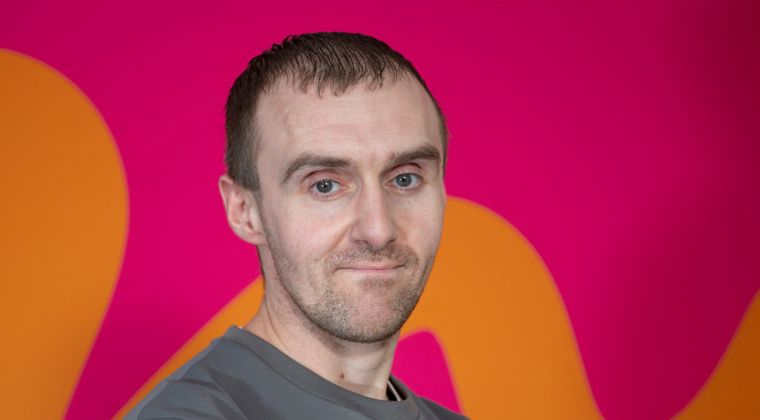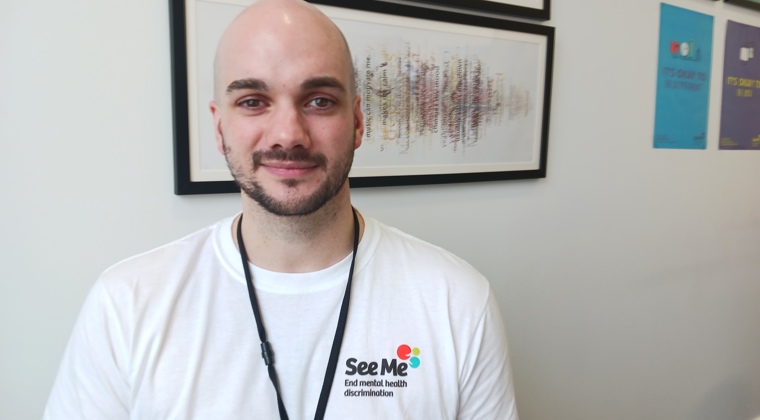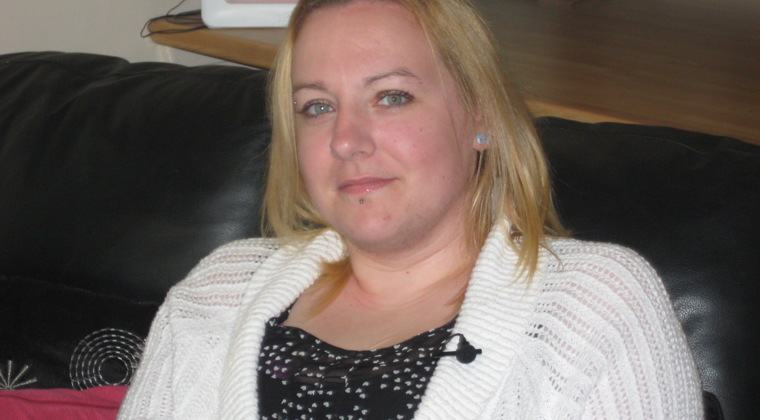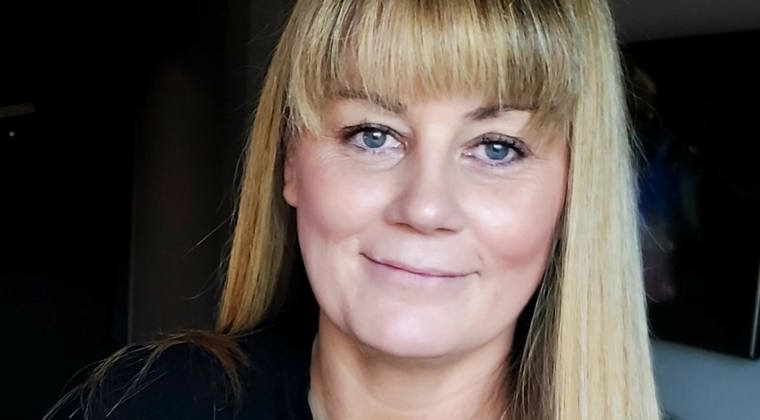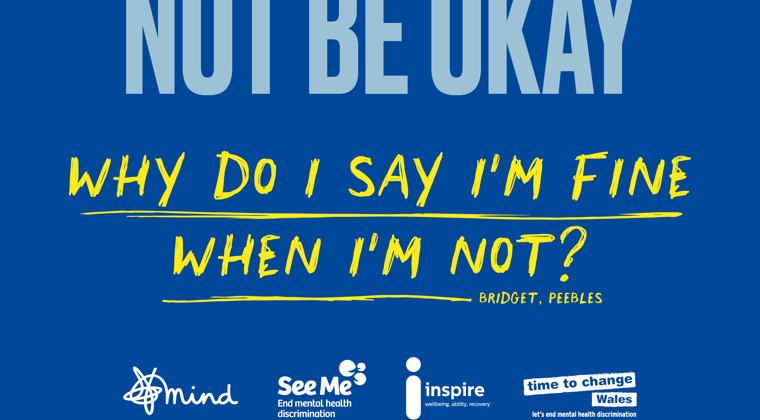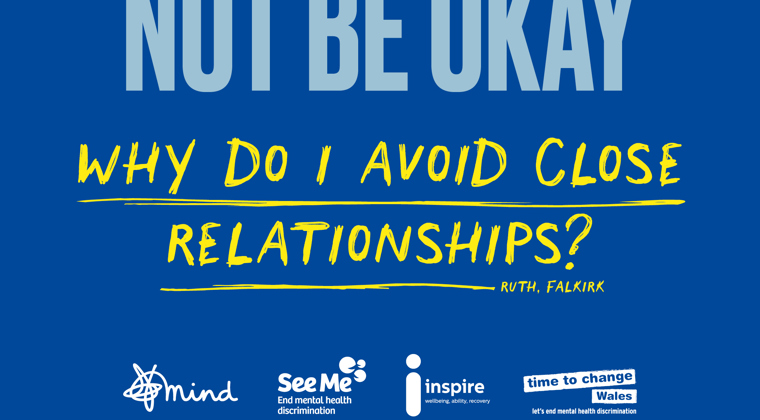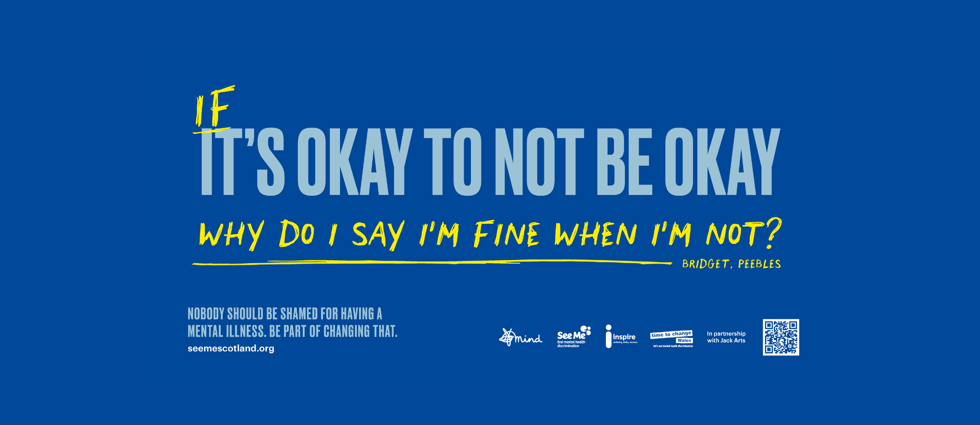
If It's Okay
The If It’s Okay campaign aims to tackle the negative impact that shame has on those with experience of mental illness.
What is the If It’s Okay campaign?
"It’s okay to not be okay" is one of the most famous lines in mental health campaigning. But for many people struggling with a mental illness, they don't believe it is.
Shame means people may hide their mental illness, even from those closest to them.
It can stop them from getting the help and support they need, isolating themselves or withdrawing from opportunities.
To tackle this, members of the UK Anti-Stigma Alliance have created If It’s Okay, a campaign running across Scotland, Wales, Northern Ireland and England.

When people who experience more complex, long-term mental illness want to tell someone what they are going through, they are judged, dismissed, isolated and discriminated against.
Instead of feeling like "it’s okay to not be okay", they are made to feel ashamed.
We want to give a voice to those who don’t feel that it is okay to speak up about their struggles and what they’re going through.
Maybe someone close to you is struggling and feeling ashamed. It’s time for us all to play a part and change this.
If it’s okay to not be okay, then why are people still being discriminated against?
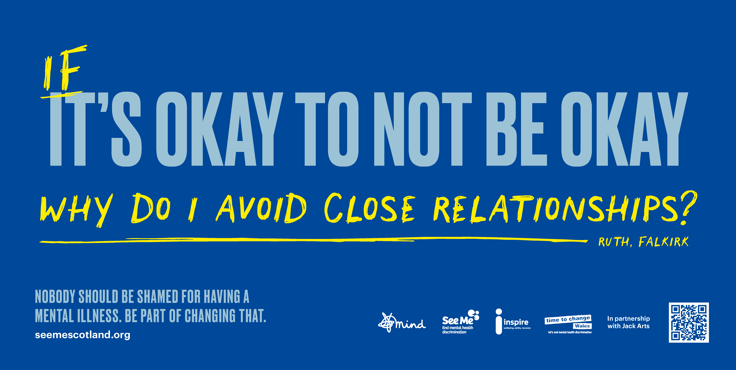
How can you tackle shame?
- How can you help someone overcome shame?
- What can I do to overcome shame?
- How to tackle shame for everyone
How can you help someone overcome shame?
- Check your attitude and behaviour.
Sometimes we can indirectly make someone feel ashamed without intending to. Think back to how you have responded when someone has told you they are struggling, and the impact your reaction could have had. - Start a conversation with someone if you’re worried.
Try starting a conversation with someone you think might be ashamed. It's not easy opening it up. In fact, it can be one of the hardest things to do.
Get tips here on how to start a conversation - Relate to someone about a time you felt ashamed.
Perhaps you felt shame before and can help someone by relating to what they are going through. Start a conversation, listen and, if you think it will help, let them know about a time when you’ve felt it wasn’t okay to not be okay. - Find out more about how you can tackle stigma and discrimination.
What can I do to overcome shame?
- Start a conversation with someone you trust.
Find someone you can trust and you know will listen. Open up a conversation about how you feel. It can feel difficult, so give yourself time and try different ways to plan what you'd like to say.
Tips on how to start talking. - Practice self-compassion.
Self-compassion is key to overcoming feelings of shame.
It starts with knowing that you deserve help, support and care. Make time for you, and do something that can help. That can meanspending time with friends or family, a walk, cooking your favourite meal, arts and crafts.
Whatever way you choose to practice, give yourself time and know you deserve it. There are also specific things that have been found to help self-compassion, including Mindfulness-Based Stress Reduction and Compassionate Mind Training. - Get support for your mental health
How to tackle shame for everyone
- Share your own ‘If it’s okay…’ on social media using the hashtag #IfItsOkay
- Share If It’s Okay assets on social media to show support using #IfItsOkay. Download these below!
- Watch out for stigmatising language and how mental illnesses are portrayed in the media. It's time we all speak up.
- Share your story, and inspire others to tackle the self-stigma that stops to many from reaching out for support.
"Shame can prevent you from asking for help in the first place, it can delay the process of recovery, and it is the main catalyst to stigma, especially self stigma and discrimination"
Bridget
Personal stories
Shame affects people in lots of different ways, and stems from different places. We spoke with some of our volunteers and supporters to find out more about the impact.
If It's Okay was launched in March 2024 in partnership with the UK Anti-Stigma Alliance - Time to Change Wales, Inspire in Northern Ireland and Mind in England.
Want to make a change?
Sign up to be part of the See Us movement!
Get our See Us Activity Pack to help you to take action, get updates on what is happening in the movement across Scotland and receive our See Change mail out.
See Us Movement
